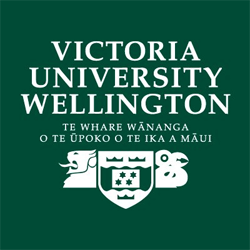
Striving for Excellence: A Guide for Tertiary Teachers
Status
Completed: 1 August 2013
Project Details
A project, completed in 2013, to develop a guide for tertiary teachers that presents insights gathered from recipients of the Tertiary Teaching Excellence Awards about what tertiary teaching excellence is, what drives excellent tertiary teachers and how they achieve what they do. A collaboration of Ako Aotearoa Academy of Tertiary Teaching Excellence, in conjunction with The University of Auckland and Victoria University of Wellington.
Aims:
The main aims of the guide are to:
- access the growing body of good practice material from those teachers recognised nationally in the Tertiary Teaching Excellence Awards
- encourage teachers to reflect on their own practice
- enhance teaching practice, either as part of ongoing professional development or in preparation of a portfolio.
Methodology:
The project methodology involved a review of Tertiary Teaching Excellence Award recipients’ portfolios to identify good practice in tertiary teaching.
Team

Dr Dawn Garbett
The University of Auckland
Rachel Williams
The University of Auckland
Dr Marc Wilson
Victoria University of WellingtonKey Findings
The key findings from the project included:
Volume 1: Striving for Excellence in Tertiary Teaching
- Tertiary teaching is hugely diverse in terms of context, level, subject matter and, not least, the learners engaging in it. Nevertheless, recurrent themes shine through. Passion both for their disciplines and the success of their students is common to all excellent tertiary teachers. Because of these twin passions, excellent tertiary teachers set high expectations of their students, but, at the same time, they listen to their students and are highly sensitive to their learning needs.
- Above all, excellent teachers are reflective practitioners, with the ability to not just reflect meaningfully on their practice, but – the mark of true professionals – also with the ability to reflect in practice and, where necessary, change tack mid-stream to maximise the learning opportunities that arise within their classes. There is joy in what they do, there is caring and there is respect for their learners. Excellent teachers are excellent learners themselves and keen to apply that learning in a teaching context.
Volume 2: Tertiary Teaching Excellence in Practice
- Without compromising their expectations, excellent teachers recognise and appreciate student diversity and go out of their way to connect with each learner. They identify students’ individual strengths and build on them. They are deliberately inclusive and, where the curriculum permits, allow a considerable level of democracy and choice within their classrooms. Considerable attention is paid to ensuring that assessment strategies are authentic and support learning.
- Excellent tertiary teachers are seldom satisfied with the status quo. They revel in the fact that each class is different and are not afraid to experiment with new approaches. At the same time, they have a great sense of what is working and what is not working and are prepared to change tack as they go.
Key Recommendations
The key recommendations from the project included:
Excellence in tertiary teaching | The two-volume reflective guide offers valuable insights to what excellence in tertiary teaching and learning means to 30 past TTEA recipients. It brings together the key elements of what it takes to be an excellent tertiary teacher.
Access to good practice material | The guide also makes it easier for educators to access the growing body of good practice material from those recognised nationally for their sustained excellence in teaching and apply it to their own teaching contexts.
Addressing staff development | Leaders, managers and staff developers may find both volumes helpful when addressing staff development, good practice in teaching, and student engagement.
A research report prepared by Dawn Garbett and Rachel Williams.
(PDF, 1.4 MB, 36-pages).
- 1 November 2013
A research report prepared by Dawn Garbett and Rachel Williams.
(PDF, 828 KB, 36-pages).
- 1 November 2013